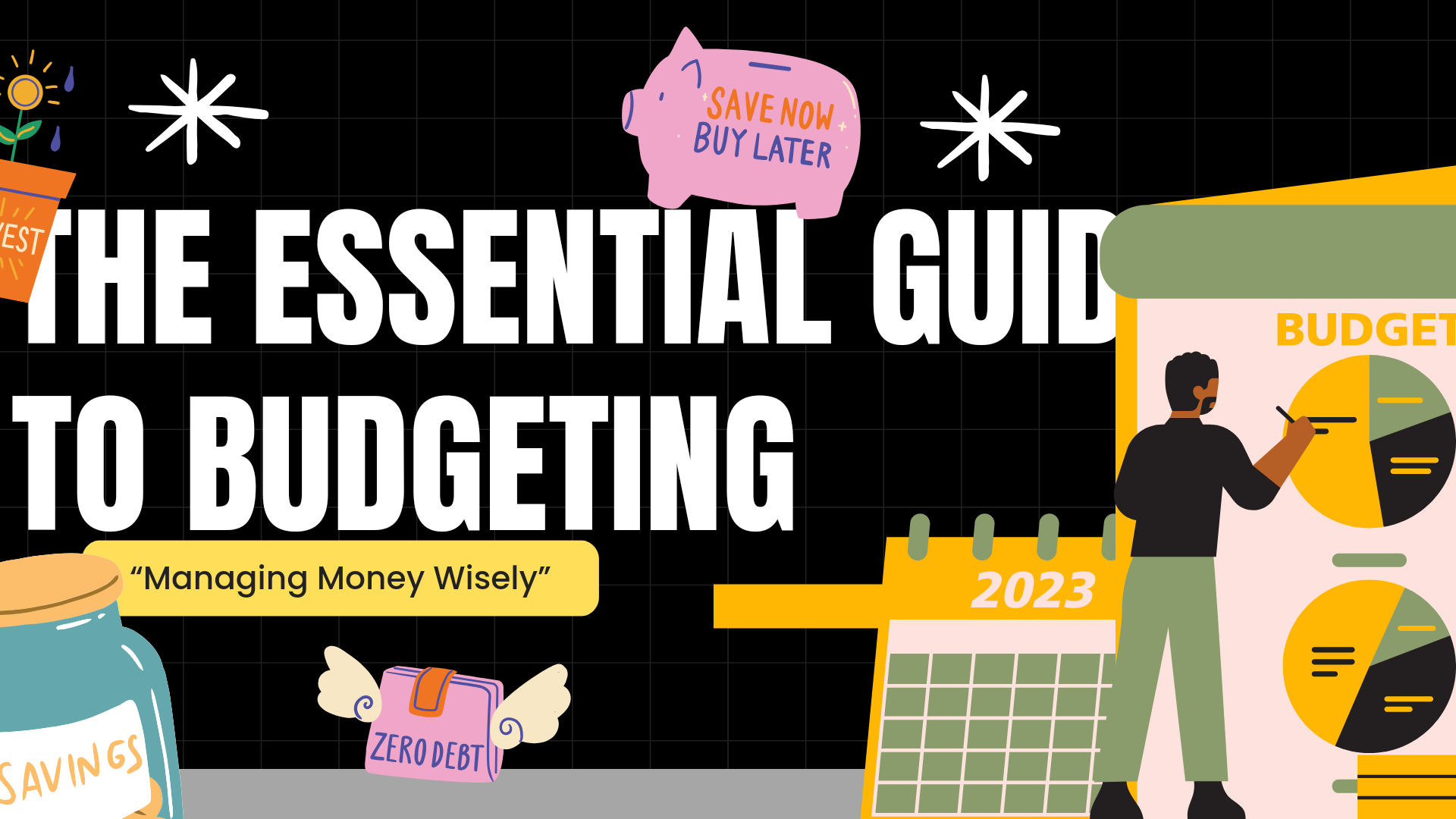Budgeting is a fundamental skill that everyone should master to achieve financial stability and long-term success, Whether you’re saving for a major purchase, planning for retirement, or simply aiming to manage your monthly expenses, a well-crafted budget can be your roadmap to financial well-being. In guide, we’ll dig into the principles of effective budgeting, explore various budgeting methods, and offer practical tips to help you build and maintain a budget that works for you.

Understanding the Importance of Budgeting
Budgeting is more than just tracking your income and expenses. It’s about creating a plan that aligns with your financial goals, helping you make informed decisions and avoid unnecessary debt.
Here’s why budgeting is important:
1. Financial Control:
A budget gives you control over your money, allowing you to assign funds where they’re needed most and avoid overspending.
Must read: Mariner Finance: A comprehensive guide
2. Goal Achievement:
Whether it’s buying a home, going on a vacation, or saving for retirement, budgeting helps you set and achieve financial goals by ensuring you save and invest wisely.
3. Debt Management:
With a clear budget, you can manage and reduce debt by prioritizing payments and avoiding new debt.
4. Stress Reduction:
Financial uncertainty can be stressful. A budget provides clarity, knowing you’re on top of your financial situation.
Steps to Create an Effective Budget
Creating an effective budget involves several key steps. Let’s know about them:
1. Check out Your Current Financial Situation
Before creating a budget, you need to understand your financial standing.
Gather information on:
Income:
Include all sources of income, such as salary, freelance work, and investments.
Expenses:
List all your expenses, including fixed costs (rent/debt, utilities) and variable costs (groceries, entertainment),etc.
Use bank statements, credit card statements, and receipts to ensure you account for all expenses accurately.
2. Set Clear Financial Goals
Define your short-term and long-term financial goals. Short-term goals might include saving for a vacation or paying off a credit card, while long-term goals could involve buying a house or retiring comfortably. Setting clear goals helps you prioritize your spending and savings.
3. Choose a Budgeting Method
Several budgeting methods can help you manage your finances effectively. Choose one that suits your lifestyle:
Zero-Based Budgeting:
Allocate every dollar of your income to specific expenses, savings, or debt repayment, ensuring that your income minus expenses equals zero.
50/30/20 Rule:
Divide your income into three categories: 50% for needs (rent, utilities), 30% for wants (dining out, entertainment), and 20% for savings and debt repayment.
Envelope System:
Allocate cash into separate envelopes for different spending categories, such as groceries, dining out, or entertainment. Once the cash in an envelope is depleted, you cannot spend any more in that category for the month.
Percentage-Based Budgeting:
Allocate percentages of your income to different categories based on your priorities and goals.
4. Create and Track Your Budget
Once you’ve chosen a budgeting method, create a detailed budget plan. Use tools like spreadsheets, budgeting apps, or financial software to help you track your income and expenses. Regularly update and review your budget to ensure you’re staying on track.
5. Adjust as Needed
I know life is very hard so, it’s not important to follow the plan I give see where you invest most and where you invest less know what is your need so make your plan yourself be focused to your goal and be productive.
Tips to Sticking to Your Budget
Creating a budget is just the first step; sticking to it is where the real challenge comes.
Here are some tips to help you stay on track:
1. Automate Savings:
Set up automatic transfers to your savings or investment accounts. This ensures that you save consistently without having to think about it.
2. Avoid Impulse Purchases:
Before making a purchase, ask yourself that it is needed or destroying your budget and financial goals. Consider waiting 24 hours before making a decision.
3. Use Budgeting Apps:
Use technology by using budgeting apps that can track your expenses, categorize spending, and provide insights into your financial habits. like Mint YNAB (You Need A Budget) EveryDollar
4. Monitor Your Progress:
Regularly review your budget and spending to track your progress. Adjust as needed to stay aligned with your financial goals.
5. Get a Professional Advice:
If you’re struggling with budgeting or managing debt, consider getting a advice from a financial advisor or credit counselor.
Common Budgeting Mistakes to Avoid
Avoiding common budgeting mistakes can improve your financial management:
1. Overestimating Income:
Avoid basing your budget on income figures that may be uncertain or unrealistic. Instead, use conservative and reliable estimates to ensure your budget remains accurate and manageable, even if actual income varies.
2. Underestimating Expenses:
Be rough in accounting all expenses, including irregular or annual costs. Neglecting these can lead to budget falls.
3. Lack of Flexibility:
Life events and emergencies can impact your budget. Ensure you have some flexibility to emergencies unexpected changes.
4. Ignoring Debt Repayment:
Prioritize paying off high-interest debt as part of your budget. Ignoring debt can lead to financial strain and increased interest costs.
Conclusion
Budgeting is a powerful tool for achieving financial stability and reaching your financial goals. By understanding your financial situation, setting clear goals, choosing the right budgeting method, and adhering to practical tips, you can master the art of budgeting. Remember, budgeting is an ongoing process that requires regular review and adjustment. With discipline and commitment, you can create a budget that not only helps you manage your money effectively but also sets you on the path to long-term financial success.
By following these guidelines, you’ll be well on your way to mastering budgeting and taking control of your financial future.
Be powerhouse of your life nobody will help you in this selfish world.

